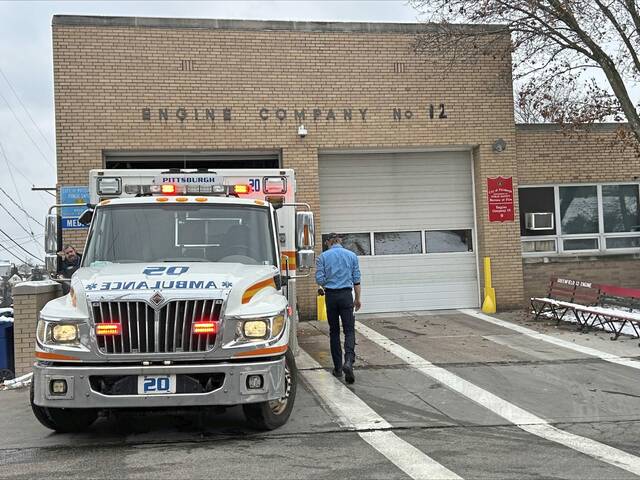On Friday, the Allegheny County District Attorney’s Office filed a notice that it would seek the death penalty for Johnathan Morris.
Morris, 31, is charged with criminal homicide, attempted homicide, assault of a law enforcement officer, murder of a law enforcement officer, aggravated assault and carrying a firearm without a license — all in connection with the Feb. 6 shooting of McKeesport police Officer Sean Sluganski.
Sluganski’s death meets the state’s threshold for capital punishment in four ways: A police officer was killed in the line of duty; the death happened in the course of committing another felony; there was a knowing risk of death; and there was a history of violent felony convictions.
Only one of those factors was required to pursue the death penalty. The notice was not a surprise.
It comes three weeks after state Sen. Mike Regan, R-Cumberland/York, proposed a mandatory death penalty for those convicted of killing a police officer.
This takes the question of sentence out of the hands of the district attorneys who prosecute crimes or the juries who decide the cases.
In Pennsylvania, capital punishment is a two-step process. First, the jury considers whether a defendant is guilty. If they decide to convict, a separate penalty phase decides whether the death penalty is warranted. The Pennsylvania Supreme Court must review and affirm or vacate the sentence. The alternative is life in prison.
Regan’s proposal came shortly after a Temple University officer was killed. The desire to do something makes sense, just like the decision to seek the death penalty in Sluganski’s death.
But the would-be change ignores two things.
First, the people deserve to be part of the process. Prosecutors have an obligation to consider all aspects of a case in making the decision to put capital punishment on the table. Jurors in a capital case shoulder the burden of guilt or innocence and life or death. Mandates subvert the process.
But secondly, it looks oblivious to reality.
Serial killer Gary Heidnik’s 1999 execution was the last implementation of the death penalty in the state. Democratic and Republican governors alike have pumped the brakes on actually going through with the sentence. Gov. Josh Shapiro has asked the Legislature to consider abandoning the process entirely.
At this point, 101 people are awaiting death, including convicted cop killers Richard Poplawski from Allegheny County and Rahmael Holt in Westmoreland County.
Changing the law is unlikely to mean more accountability for killing a police officer. That’s up to prosecutors, juries and courts to decide.








